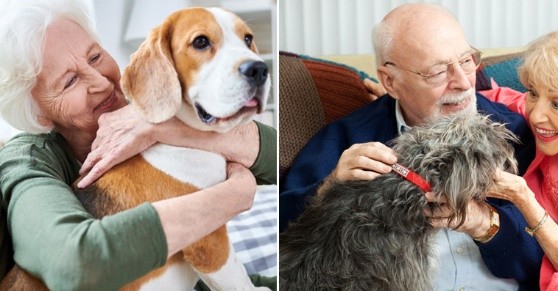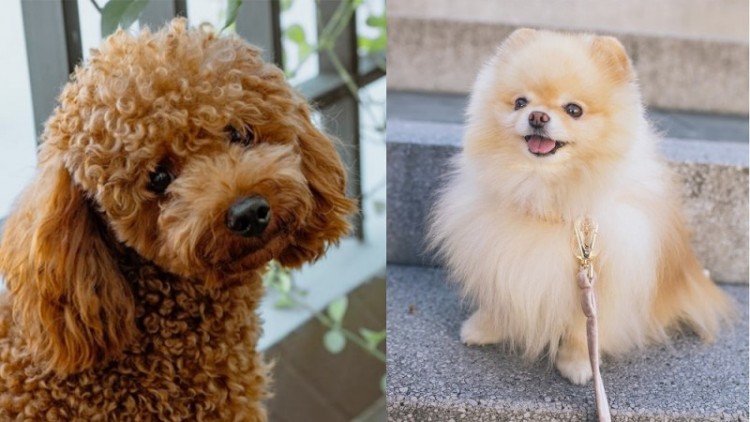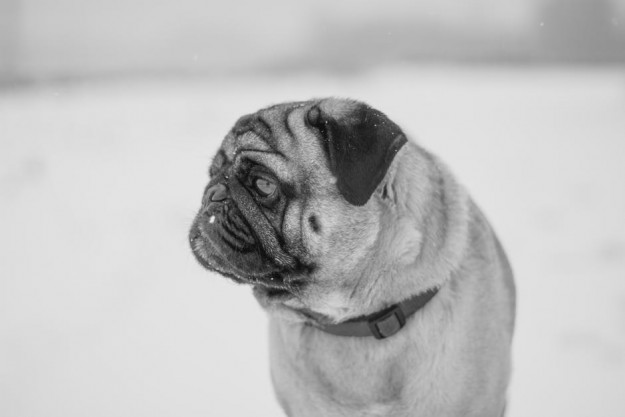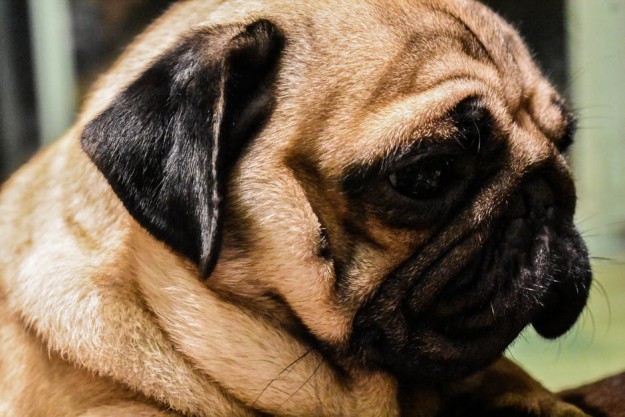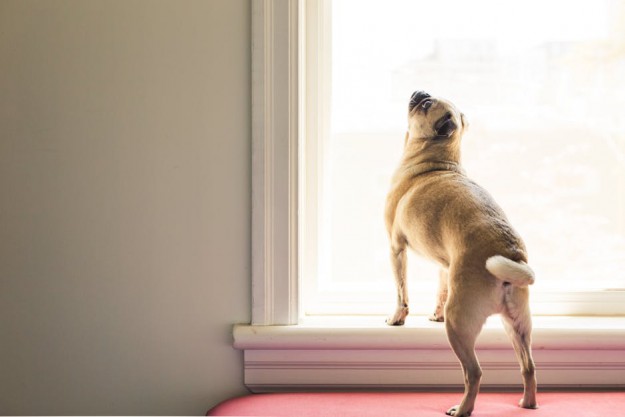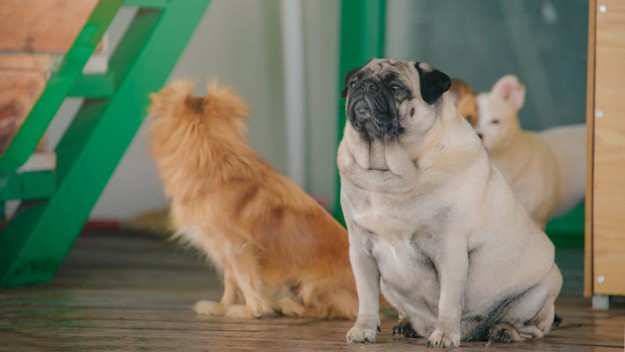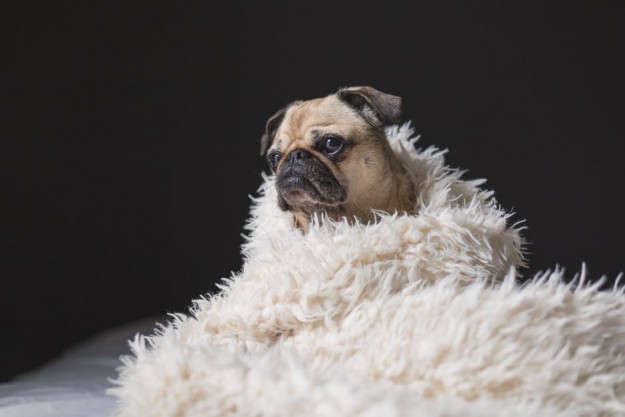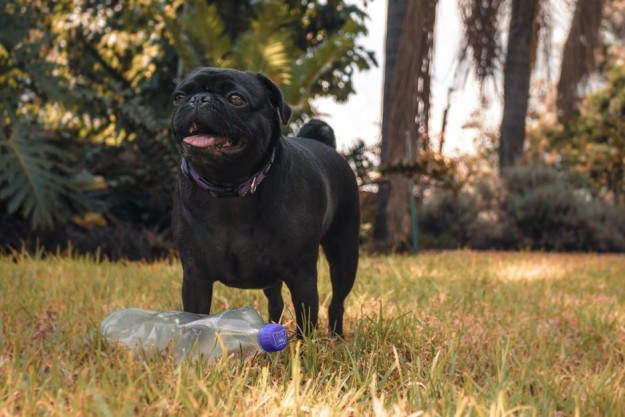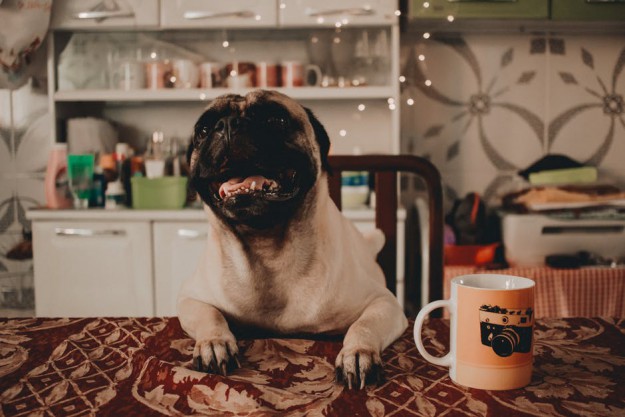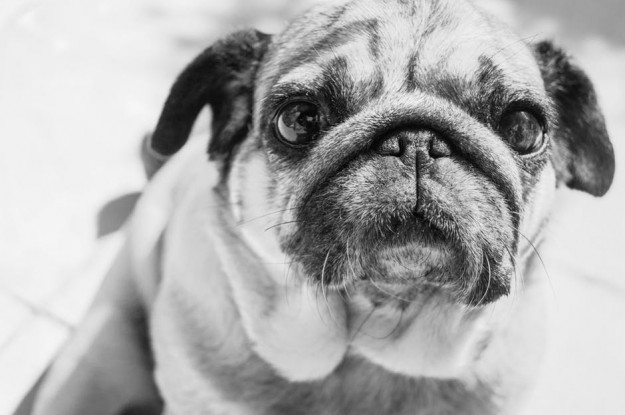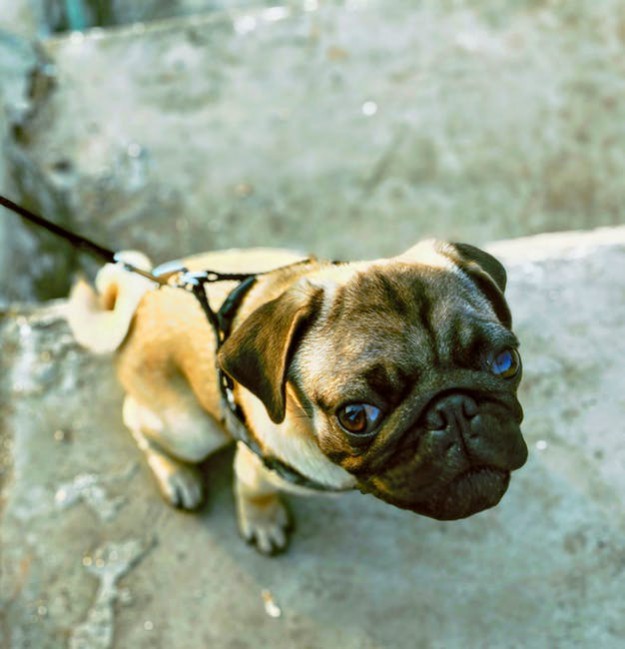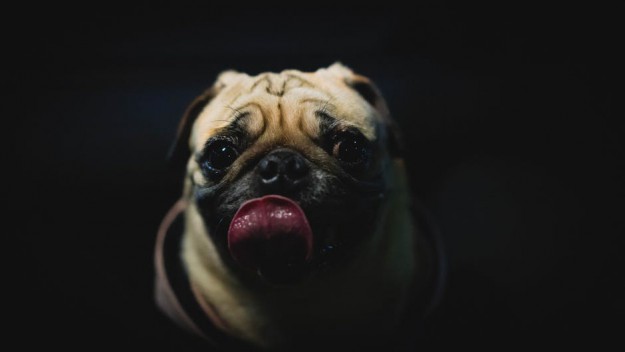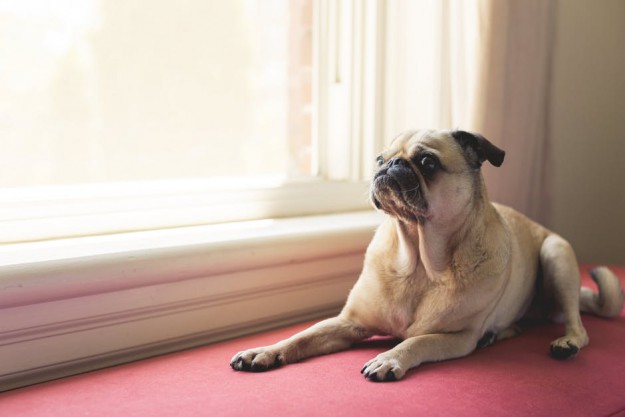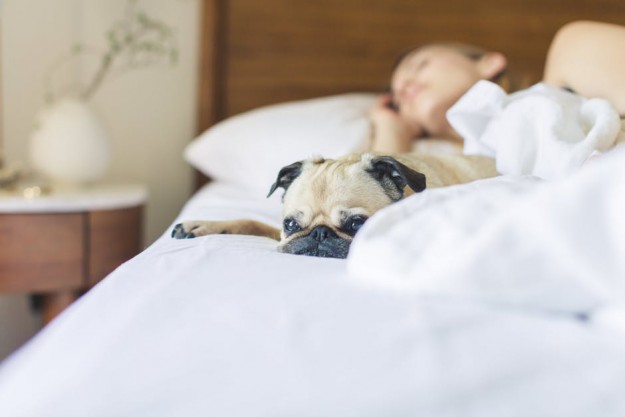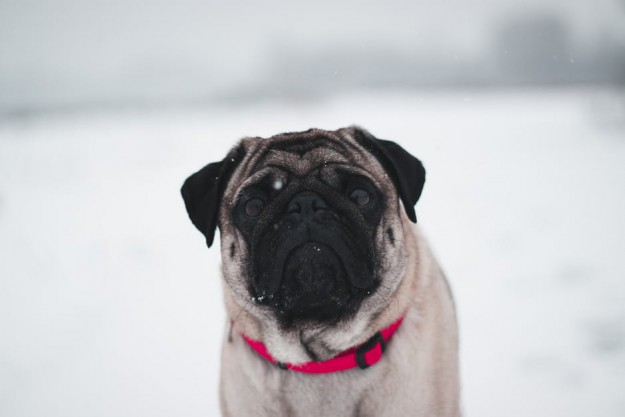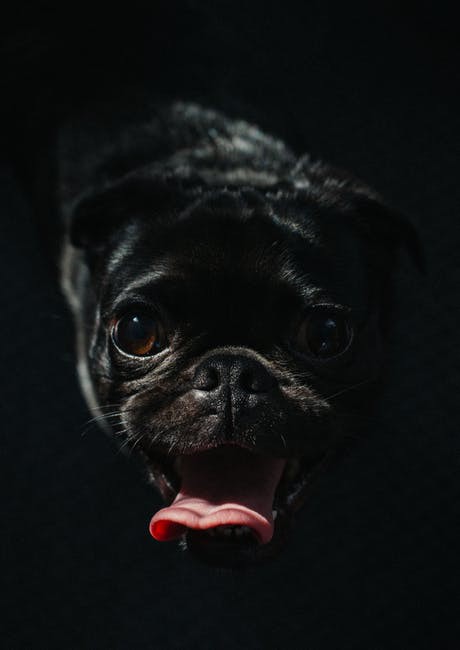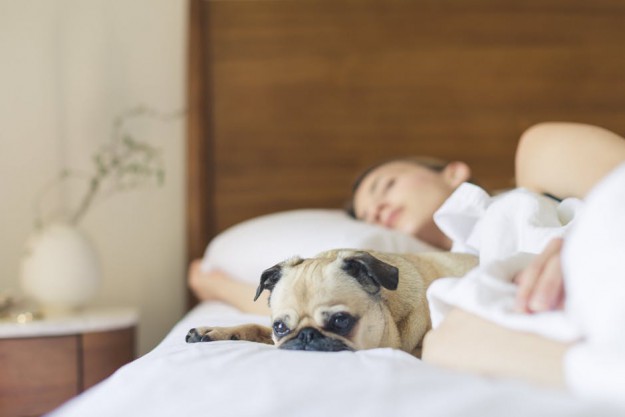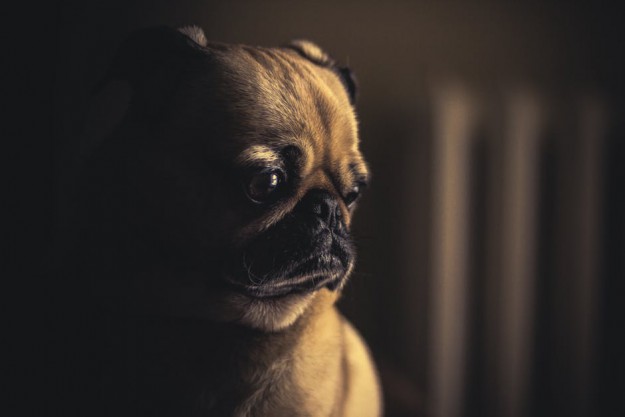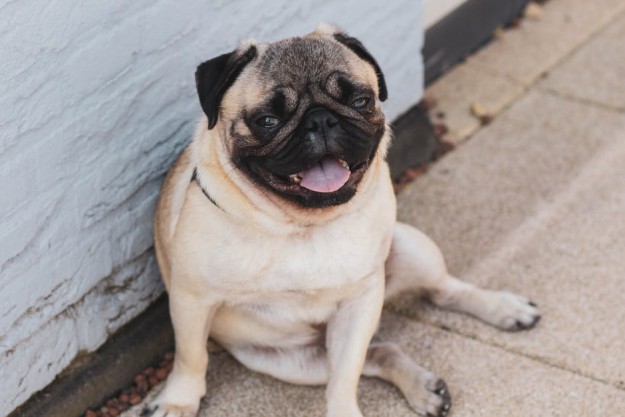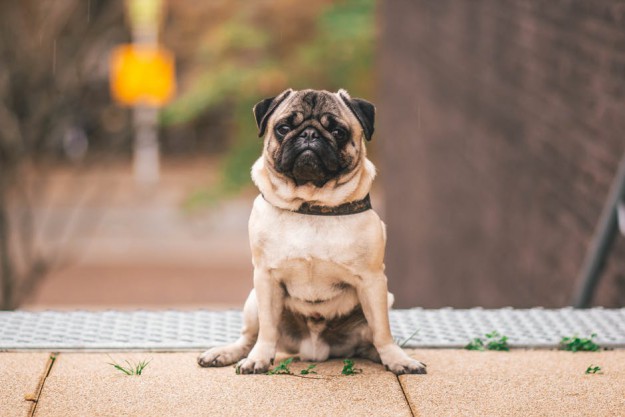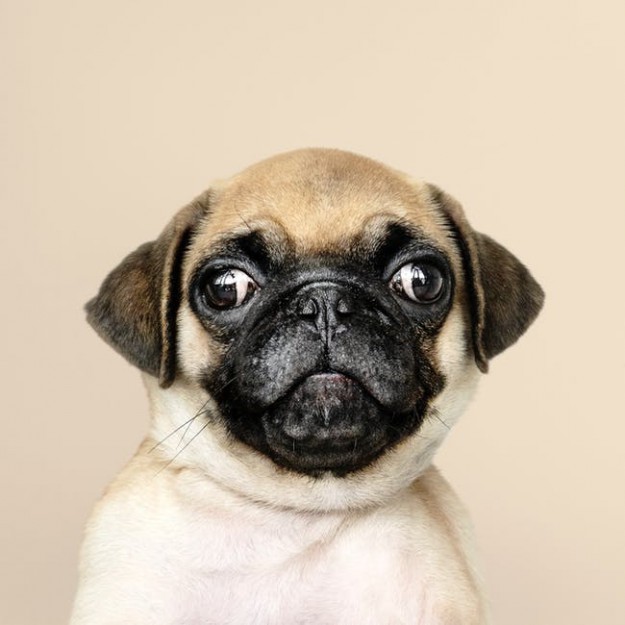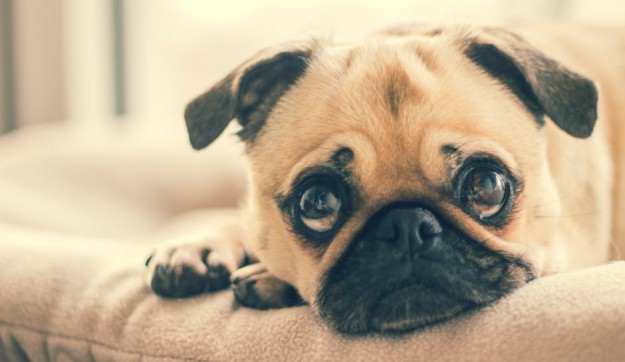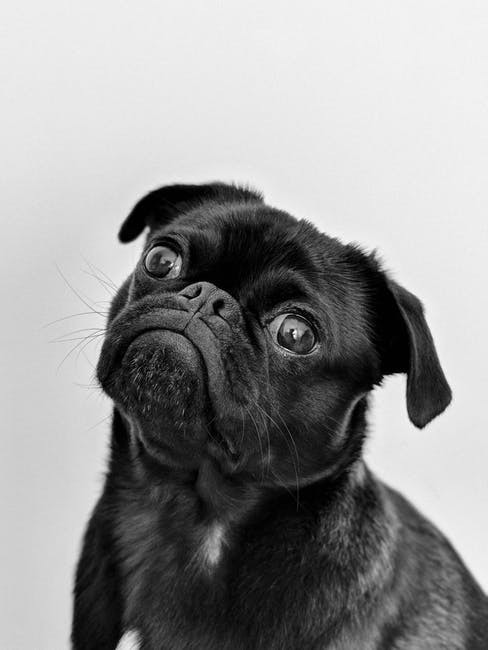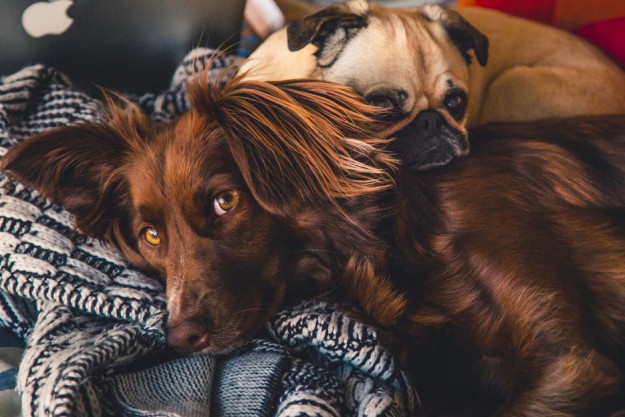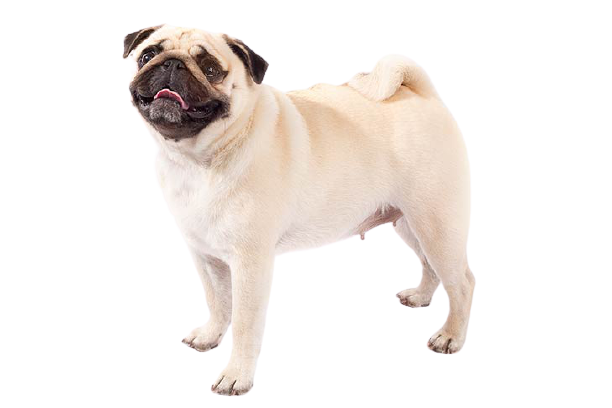
Pug
USD $300-$500 Price Avg.
Companion Dogs
Group
Purebred
Breed Type
Small
Size
12-15 years
Lifespan
Breed Information
| Group | Companion Dogs |
|---|---|
| Popularity/Rank | 31 |
| Origin | China |
| Other Names | Carlin, Chinese Pug, Dutch Bulldog, Dutch Mastiff, Mini Mastiff, Mops |
| Breed Type | Purebred |
| Price (Avg.) |
USD $300-$500
How much does a Pug cost? According to a rough estimate, you will spend between $300 to $500 on your Pug if you purchase it from a reputable breeder. If you select a dog with exceptional bloodlines, the price may be higher. The price might even be higher if the dog has already been trained. You'll usually pay less if you get a Pug from a shelter. |
| Size | Small |
| Weight |
Male: 13-20 pounds (6-9 kg),
Female: 13-18 pounds (6-8 kg) |
| Height |
Male: 12-14 inches (30-36 cm),
Female: 10-12 inches (25-30 cm) |
| Lifespan | 12-15 years |
| Recognized by |
AKC, FCI
The American Kennel Club in 1885 as a Toy breed. And FCI in the Companion and Toy Dogs group, in the Small Molossian type Dogs section. |
| Purpose | Companion |
| Date of Origin | Ancient Times |
| Ancestry | Bulldog, French Mastiff, Pekingese |
Appearance & Maintenance
| Coat | Fine |
|---|---|
| Coat Colors | Black, Fawn |
| Grooming Level | |
| Shedding Level | |
| Eye Color Possibilities | Brown |
| Nose Color Possibilities | Black |
| Coat Color Possibilities | Black, Fawn |
| Coat Length | Small |
| Coat Density | Sparse |
| Coat Texture | Straight |
| Recommended Brushes | Nail Clipper, Scissors, Slicker Brush |
| Brushing Frequency | Weekly |
Breed Characteristics
| Temperament | Affectionate, Brave, Caring, Cheerful, Courageous, Daring, Delicate, Friendly, Gentle, Going, Intelligent, Loyal, Playful, Sportive |
|---|---|
| Intelligent | |
| Trainability | |
| Playfulness | |
| Sensitivity Level | |
| Affection Level | |
| Social Interaction Required | |
| Barking | |
| Watchdog Ability | |
| Territorial | |
| Biting Force | Low |
| Mouthiness | |
| Impulse to Wander or Roam | |
| Prey Drive | |
| Adaptability | |
| Tolerates Being Left Alone | |
| Fighting Dog | Not really |
Good & Friendly with
| Apartment Life Friendly | |
|---|---|
| Stranger Friendly | |
| Kid-Friendly | |
| Cat Friendly | |
| Dog Friendly | |
| Office Friendly | No |
| Senior Citizens Friendly | |
| Pet Friendly | |
| Friendly with First Time Owners | No |
| Service Dog | Not really |
| Therapy Dog | Yes |
| Detection, Sniffer or Security Dog | Not really |
| Search and Rescue Dog (SAR) | Not really |
| Boat Dog | Not really |
| Cart Pulling or Drafting Dog | Not really |
Health Elements
| Health Issues | |
|---|---|
| Health Problems | Allergies, Cheyletiella Dermatitis, Corneal Ulcers, Demodectic Mange, Distichiasis, Dry Eye, Entropion, Epilepsy, Hemi-vertebrae, Hip Dysplasia, Legg-perthes Disease, Nerve Degeneration, Pate |
| Hypoallergenic | No |
| Energy Level | |
| Exercise Required | |
| Sleeping Required | |
| Weight Gain Potential | |
| Weather & Climate | Prefers average to warm weather conditions |
| Stinkiness | High |
| Drooling tendency | |
| Activity Level | Moderate |
| Rec. Walk Mileage Per Week | 5 miles |
| Minutes of Activity Per Day | 40 minutes |
Food & Costing
| Avg. Daily Food | 1/2 to 1 cup dry food a day. |
|---|---|
| Cups Per Day | 1 cups |
| Daily Cost | $1.00 - $1.20 |
| Monthly Cost | $25.00 - $36.00 |
Reproducibility
| Gestation Duration | 60-64 days |
|---|---|
| How often can the Pug have a litter? | Once a year. |
| Litter Size | 2-4 puppies (Once a year.) |
Description
The Pug is a small, compact, and muscular dog breed that has become increasingly popular in recent years. They have a unique appearance with their large eyes, short muzzle, and wrinkled face. Pugs are known for their friendly and playful personalities, making them great family pets. In addition to their charming looks and personality, they also have a long lifespan of 12-15 years and come in a variety of colors including fawn, black, apricot-fawn, silver-fawn, and brindle.
Pugs typically weigh between 14-18 pounds and stand between 10-13 inches tall at the shoulder. They have short coats that require minimal grooming but do shed quite a bit so regular brushing is recommended to keep shedding under control.
Pugs are known for being friendly and affectionate dogs who love spending time with their owners. They are also very social animals who enjoy playing with other dogs as well as children. Pugs tend to be quite tolerant of other animals such as cats but may bark at strangers or unfamiliar animals if not properly socialized from an early age.
The temperament of the Pug is generally laid back but they can be quite energetic when playing or going on walks with their owners. They are intelligent dogs who can learn basic commands quickly but may become stubborn if not given enough mental stimulation or exercise on a regular basis.
The health of the Pug is generally good although they can suffer from certain health issues such as eye problems due to their protruding eyes or breathing difficulties due to their short muzzles which can make them prone to heatstroke in hot weather conditions. Regular vet checkups are recommended for all breeds of dog including the Pug in order to ensure any potential health issues are caught early on before they become more serious problems later down the line.
The adaptability level of the Pug is high which makes them suitable for most living environments including apartments or houses with yards provided they get enough exercise each day either through walks or playtime indoors/outdoors depending on where you live geographically speaking (i.e., colder climates). The benefits of having a Pug as a pet include its loyal nature towards its owners along with its intelligence which makes it easy to train basic commands such as sit/stay/come etc., plus its small size means it doesn’t take up too much space inside your home!
History
Pug dogs are one of the most popular dog breeds in the world, and they have a long and interesting history. Pugs were first bred in China, and they were the favorite dogs of the Chinese emperors. The Pug breed almost became extinct during the reign of the emperor Yongzheng, who banned all dogs from his palace except for Pugs. However, the Pug breed eventually became popular again, and they were brought to Europe by Dutch traders in the 17th century.
Pugs quickly became popular in Europe, and they were especially favored by Queen Victoria. Pugs were also popular in America during the Victorian era. The Pug breed has a long and fascinating ancestry, and they are recognized as a distinct breed by most major kennel clubs. Pugs are still one of the most popular dog breeds in the world, and they are loved for their unique appearance and friendly personality.






